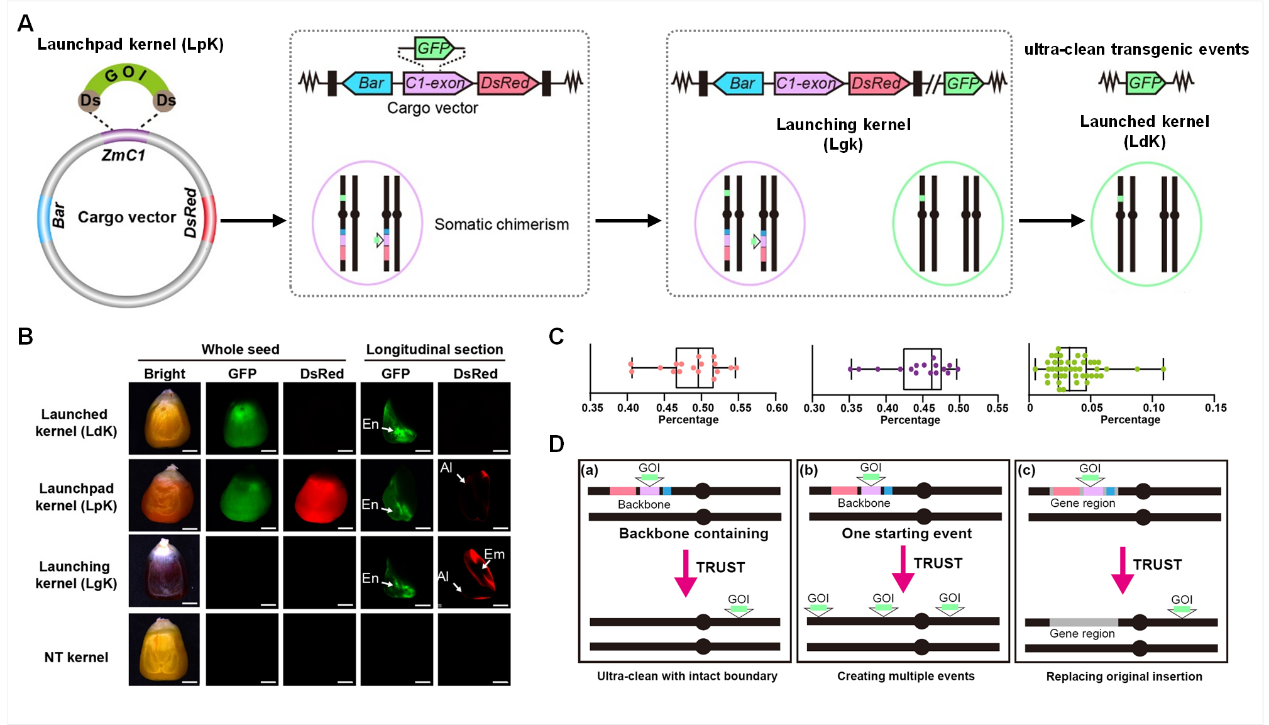The Biotechnology Research Institute of the Chinese Academy of Agricultural Sciences (CAAS), in collaboration with the Institute of Crop Sciences, CAAS, has developed the Transposon-Mediated Ultra-Clean Selectable Transformant (TRUST) technology. This technique provides a new strategy for the complete removal of selectable markers and vector backbone sequences from transgenic materials. The related research findings have been published in New Phytologist.
Genetic transformation technology is crucial for improving crop yield, resistance, and quality. However, the residual selectable markers and vector backbones in transformants not only increase the cost of safety evaluation but also carry potential risks of unintended effects. Consequently, the generation of marker-free transformants has been a key research area in genetic engineering technology.
The TRUST technology uses the "cut-and-paste" mechanism of the Ac/Ds transposon to relocate the target gene actively. Simultaneously, it employs fluorescent protein and anthocyanin markers to precisely track the separation process of the target gene and the vector backbone. This study design provides an efficient, visual, and controllable method for thoroughly removing exogenous vector backbone and selectable markers. Furthermore, the TRUST technology enables the generation of multiple independent transformation events from a single initial transformant, thereby enabling more efficient increases in transformant events, even in crops with low transformation efficiency. The TRUST technology has been applied for a Chinese invention patent and can be used to create new germplasm for high-quality, high-yield, and multi-resistant maize and other crops. It holds significant value for accelerating the industrialization of genetically modified crops.
Dr. Shuai Ma (currently working at the Beijing Academy of Agriculture and Forestry Sciences), Dr. Suzhen Li, and Ph.D. candidate Xiangyu Lu are the co-first authors. Prof. Rumei Chen and Prof. Xiaojin Zhou from the Biotechnology Research Institute, and Prof. Tianyu Wang from the Institute of Crop Sciences are the co-corresponding authors. Prof. Wujun Jin and Mei Dong from the Biosafety Team also participated in this work. This work was supported by the Biological Breeding-Major Projects of China, the National Natural Science Foundation of China, the CAAS-Syngenta Innovation Expansion Project, the National Key Research and Development Program of China, and the Innovation Program of the Chinese Academy of Agricultural Sciences.
More information can be found through the link:
https://nph.onlinelibrary.wiley.com/doi/10.1111/nph.70017

Figure1. TRUST technology workflow and verification case study |